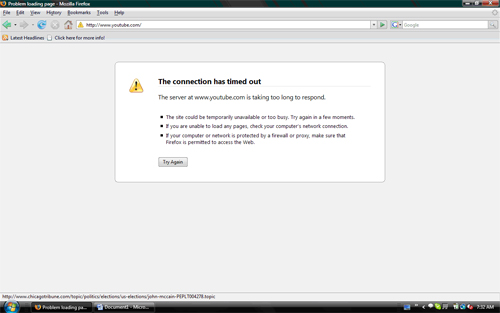The Cat-and-Mouse Game in the Turkish Cyberspace
YouTube was blocked again in Turkey on May 6, 2008 following an Ankara court order. YouTube has been banned a number of times in the last two years, usually because of videos offensive to the country hero Kemal Ataturk or to the broadly defined “Turkishness”. Article 301 of the Turkish Criminal Code, which criminalizes activities insulting “Turkishness”, is one of the most debated provisions in the Code, and has been widely used by the Criminal Courts of Peace to regulate online activities. Any such offensive video is sufficient to trigger prosecutor’s office reaction despite YouTube’s previously expressed agreement to take down offensive videos if advised in advance, as noted by UK Times Online (here).
Most of the court rulings remain hidden from the public eye. One of the reasons for this is the recent change in the Attorneys’ Law in Turkey, which restricts, in this type of cases, the right to make a copy of a court decision available to only the parties. This provides leeway for speculation on the grounds of these decisions and makes it difficult for other Web sites to understand how they can fully comply with the law.
ONI research has shown that usually the court grounds its rulings on the Turkey Internet Law that sanctions criminal activities committed online and on a number of other laws, including the Criminal Code and the Law on Crimes Against Ataturk. The Telecommunications Regulatory Agency is not always made aware of the ban prior to its implementation. Instead, the main ISP in the country, TurkTelecom, implements the ruling directly and sometimes other ISPs may be requested to block the site as well. As a result, most often the content providers and site owners hear of the court proceedings and eventual ban only after their site has been blocked. (For example, see previous bans on WordPress and YouTube).
In addition, an individual claim may be sufficient to cause a ban of a whole site: a recent GoogleGroups ban, according to ONI research, was enforced following an individual claim that a blogger posted a defamatory comment on the server against the claimant.
The most recent YouTube ban, however, has been executed by the Telecommunications Agency following a court decision; specific reasons for the ruling remain unknown. The block page says in English and Turkish “YouTube was blocked by Telekomünikasyon ?leti?im Ba?kanl???, according to the order of Ankara 11. Sulh Ceza Mahkemesi, April 24, 2008 of 2008/468." Interestingly, on several occasions when access to YouTube was attempted, the connection timed out.
A number of sites has been blocked in Turkey for the last months, including P2P sites, live stream sport sites, CNN blogger, military, and forum sites. Some of the blocks remain even after the domain names expire.
In January was ordered a ban on Slide.com, which was executed days later. A site representative confirmed to an ONI researcher that Slide had not received any official notice from the Turkish court regarding his issue. Apparently, other services of Slide.com were also blocked, including the FunWall and SuperPoke applications on Facebook. The Turkish users received a block message when attempting to access these services.
According to Reuters, cited by Turkishdaily.com, the Slide.com team had to find a way to help users within Turkey regain access to their services. The Slide's site and its applications are available now but the number of sites blocked or threatened to be blocked in Turkey is rapidly growing.




